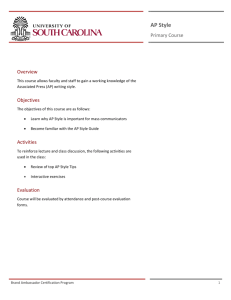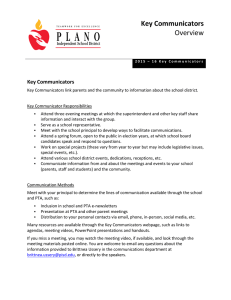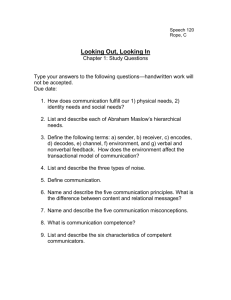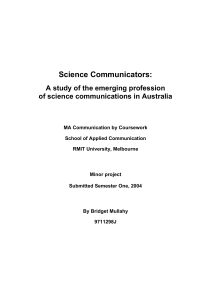Social marketing represents exactly the opposite of what we have
advertisement
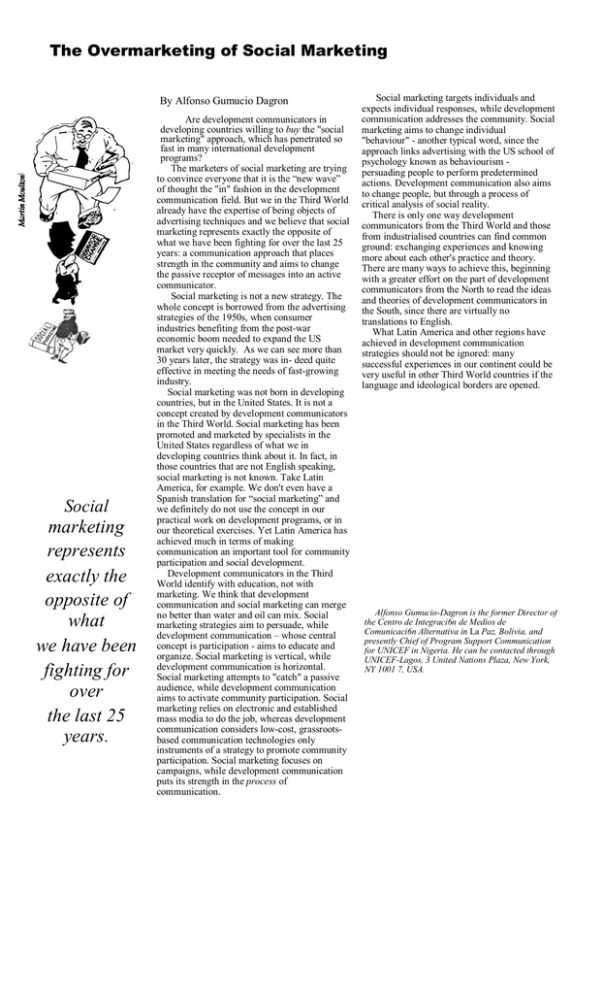
The Overmarketing of Social Marketing By Alfonso Gumucio Dagron Social marketing represents exactly the opposite of what we have been fighting for over the last 25 years. Are development communicators in developing countries willing to buy the "social marketing" approach, which has penetrated so fast in many international development programs? The marketers of social marketing are trying to convince everyone that it is the “new wave” of thought the "in" fashion in the development communication field. But we in the Third World already have the expertise of being objects of advertising techniques and we believe that social marketing represents exactly the opposite of what we have been fighting for over the last 25 years: a communication approach that places strength in the community and aims to change the passive receptor of messages into an active communicator. Social marketing is not a new strategy. The whole concept is borrowed from the advertising strategies of the 1950s, when consumer industries benefiting from the post-war economic boom needed to expand the US market very quickly. As we can see more than 30 years later, the strategy was in- deed quite effective in meeting the needs of fast-growing industry. Social marketing was not born in developing countries, but in the United States. It is not a concept created by development communicators in the Third World. Social marketing has been promoted and marketed by specialists in the United States regardless of what we in developing countries think about it. In fact, in those countries that are not English speaking, social marketing is not known. Take Latin America, for example. We don't even have a Spanish translation for “social marketing” and we definitely do not use the concept in our practical work on development programs, or in our theoretical exercises. Yet Latin America has achieved much in terms of making communication an important tool for community participation and social development. Development communicators in the Third World identify with education, not with marketing. We think that development communication and social marketing can merge no better than water and oil can mix. Social marketing strategies aim to persuade, while development communication – whose central concept is participation - aims to educate and organize. Social marketing is vertical, while development communication is horizontal. Social marketing attempts to "catch" a passive audience, while development communication aims to activate community participation. Social marketing relies on electronic and established mass media to do the job, whereas development communication considers low-cost, grassrootsbased communication technologies only instruments of a strategy to promote community participation. Social marketing focuses on campaigns, while development communication puts its strength in the process of communication. Social marketing targets individuals and expects individual responses, while development communication addresses the community. Social marketing aims to change individual "behaviour" - another typical word, since the approach links advertising with the US school of psychology known as behaviourism persuading people to perform predetermined actions. Development communication also aims to change people, but through a process of critical analysis of social reality. There is only one way development communicators from the Third World and those from industrialised countries can find common ground: exchanging experiences and knowing more about each other's practice and theory. There are many ways to achieve this, beginning with a greater effort on the part of development communicators from the North to read the ideas and theories of development communicators in the South, since there are virtually no translations to English. What Latin America and other regions have achieved in development communication strategies should not be ignored: many successful experiences in our continent could be very useful in other Third World countries if the language and ideological borders are opened. Alfonso Gumucio-Dagron is the former Director of the Centro de Integraci6n de Medios de Comunicaci6n Alternativa in La Paz, Bolivia, and presently Chief of Program Support Communication for UNICEF in Nigeria. He can be contacted through UNICEF-Lagos, 3 United Nations Plaza, New York, NY 1001 7, USA.
